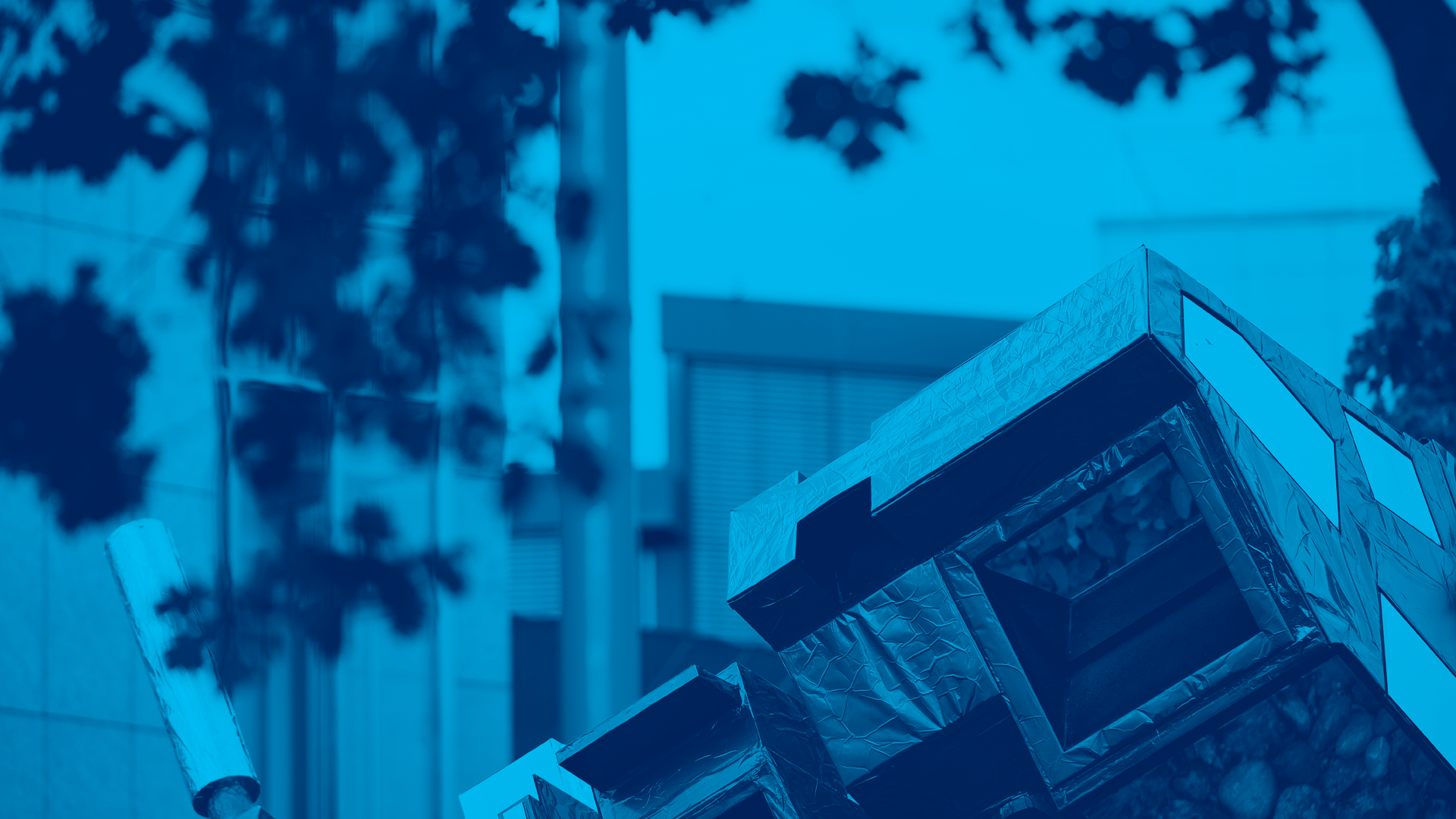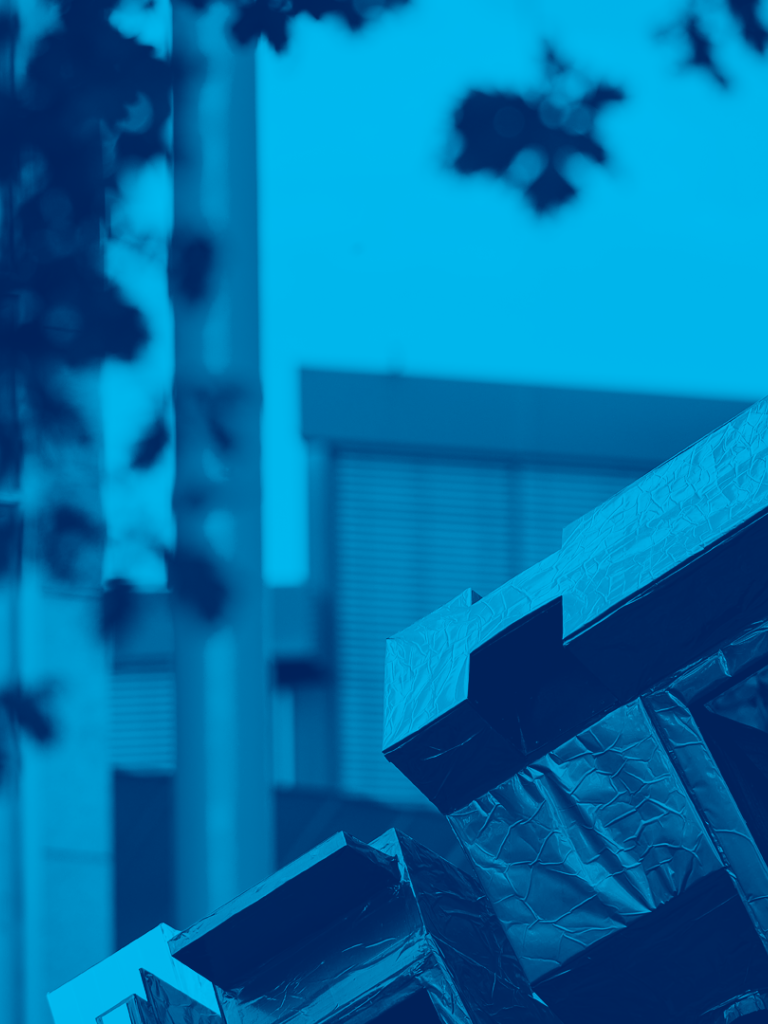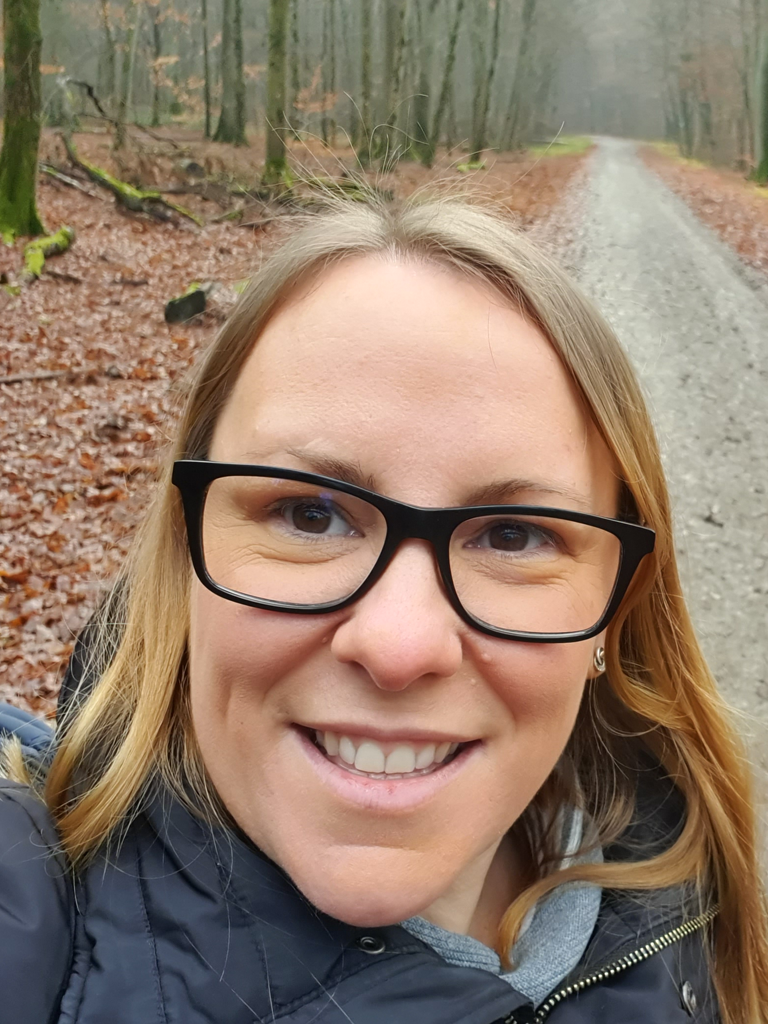
Inside EUMETSAT: meet Peter and Mari
Inside EUMETSAT interviews Peter Albert and Mari Bravo Rodriguez


Inside EUMETSAT returns this month with another in-depth interview featuring two more of our outstanding EUMETSAT colleagues Mari Bravo Rodriguez and Peter Albert! Peter joined EUMETSAT in December of 2005, while Mari started in January 2020.
20 June 2023
17 November 2021
Inside EUMETSAT is a series of articles for the EUMETSAT Science Blog that will be published over the next weeks and months. Each month, we’ll introduce you to two valued members of our team: one newcomer, who joined in the past year, and one senior staff member who has spent years at the organisation.
In a time that’s far from ordinary, we hope to use this opportunity to introduce our readers to some of the diverse and friendly faces they might encounter in the course of a normal day at EUMETSAT. It’s our goal to appreciate and celebrate all the different and talented people who work here. We hope these articles will help you discover—or rediscover—EUMETSAT.
Meet Peter and Mari!


What is your current role at EUMETSAT? What are your current duties?
Peter Albert: I am the Copernicus Programme Management Engineer. The Copernicus Programme is an interesting cosmos of its own, with the Sentinel space infrastructure, the Copernicus Services, its governance structure and user community. Within Copernicus, EUMETSAT delivers Earth observation data services from the Sentinel satellites and our own missions. EUMETSAT is responsible for operating the Sentinel-3, Jason-3, and Sentinel-6 Michael Freilich satellites, and will soon also operate Sentinel-4 and -5. Together with our partner organisations the European Centre for Medium-Range Weather Forecasts (ECMWF), Mercator Ocean International and the European Environment Agency, EUMETSAT also operates WEkEO, one of the Copernicus data and information access services. WEkEO is a platform providing a harmonised data access to Copernicus data coming from the Sentinel satellites and the Copernicus Services, combined with processing infrastructure for user projects, and direct access to experts from all data sources. I support the Copernicus Programme Manager in the supervision of the planning and execution of EUMETSAT's contribution to Copernicus. My duties cover the preparation and support to management meetings with the European Commission, the collection, compilation, and preparation of regular reporting, and the related action tracking and information exchange within the Copernicus team. I am also the WEkEO Service Coordinator, where I am responsible for ensuring that the WEkEO operation and evolution is properly shared and managed across the four partners and industry.
Mari Bravo Rodriguez: My role at EUMETSAT is that of Project Controller. I started in the GEO division and have recently moved to the Technical and Scientific Support (TSS) and Operations (OPS) departments project control team. For this reason, my current duties will change very soon, but will always remain within the project control field. As part of this process, I have started to perform some tasks in the TSS/OPS project control team and I will gradually be introduced to the job and the colleagues. I started with the Information and Communication Technology (ICT) division budget. My current duties are to support the Authorizing Officer in tasks related to procurement, budget control, and human resources planning.
Do you normally interact with your interview counterpart and his/her division? Have you personally worked with him/her?
PA: Mari works in the Process Assurance and Management Support (PRS) division, probably the most "matrix-like" division of the organisation. I interact often with the colleagues from PRS providing key functions like quality assurance, project planning and control, and information management. Often the colleagues are deeply embedded into the team, though, such that it doesn't feel like talking to a different division. I haven't worked with Mari personally yet, which is also because the Sentinel-4 mission on Meteosat Third Generation is still in its development phase and will only come under the "Copernicus umbrella" after the launch and commissioning of the first MTG-S spacecraft.
MBR: Although I haven’t worked directly with Peter yet, I think I will do that very soon. I will gradually get into the teams and I think I will interact with him at the time of the budget cycle and the human resources planning. I will need his inputs in order to prepare the budgets for the TSS/OPS departments.
What has been your biggest challenge during COVID and lockdown? Do you feel supported by EUMETSAT?
PA: During the lockdown and the resulting teleworking, I missed the opportunities for spontaneous corridor or coffee queue talk with colleagues I don't regularly interact with. From my previous role at EUMETSAT as requirements engineer I still know many colleagues in different parts of the organisation, and randomly meeting and talking to some of them always helped me to see my own work in a broader context. The feeling of contributing to something bigger is motivating, and in the absence of those encounters it is more difficult to keep the motivation up and high. EUMETSAT did what it could in this period, the technical infrastructure worked well, and if not, a helpful hand (or ear) from ICT was always near. I also appreciated the updates from the Covid Coordinating Committee, and especially the strong involvement of the Staff Association Committee there. And last but not least, EUMETSAT is not only made up of management, and it was great to see how all colleagues tried their best to cope with the challenging situation, with a lot of mutual understanding and support.
MBR: My biggest challenge during COVID-19 has been to stay mentally healthy. It was a very hard time for people and everyone was affected differently. When the lockdown started, it coincided with one of the biggest work peaks of the year for the project controllers. We had to start planning draft budgets and we had to do this remotely. It was quite a challenge for us. In addition, there are personal situations to take into account. In my case, I was at home with two girls aged three and five. They had to be looked after and cared for. It was very difficult to separate and reconcile work and personal life, it seemed like it was all together 24 hours a day. There were many days, and they were all pretty much the same. We also did not know when it was going to end, so my biggest challenge was to navigate this hard situation while staying healthy.
Where do you usually work from? How do you interact with your colleagues?
PA: Currently, I typically come to the office on two days per week, and work three from home. Interaction with colleagues is still largely based on e-mail, Skype, Webex and Zoom. There isn't really a coffee queue yet!
MBR: I usually work 50% at home, 50% in the office. Sometimes it is a bit more at the office, but on average it's around 50%. Nowadays, the interaction with our colleagues has improved a lot, before it was only in the office. Now we talk on site, via Skype, by phone or with e-mails. I personally prefer face-to-face or video interactions.
What is your experience of EUMETSAT during normal, non-pandemic times? Why do you like working here?
PA: I experience EUMETSAT as a buzzy workplace full of motivated colleagues. There is quite a variety of people with totally different work roles and tasks, as well as different personalities and views of the world. But I always experienced a strong energy and motivation with most of them, linked to the understanding that it all "made sense", both in day-to-day activities and the overall organisational goals. Of course not everything is golden, and sometimes people are frustrated and/or laconic after bumping into the same wall over and over again, but you can always have an interesting discussion with any of them.
What has been your experience of EUMETSAT since your recruitment? Were you able to come to HQ and meet colleagues face-to-face?
MBR: I have been working at EUMETSAT since March 2013. First as a temporary employee, then as a local staff, and since January 2020 as a hired staff. Overall my experience at EUMETSAT has been very positive. It is a very nice place to work, always evolving and with plenty of opportunities to learn. I like the international and multicultural environment and I enjoy contributing to it. There are many reasons to like EUMETSAT as a workplace, but in my opinion the two main ones are:
- the working model: at EUMETSAT you work in teams and I love the cooperation of people and team achievements;
- the great human capital: there are very good and highly qualified people who carry out important work here. Thanks to them, those of us developing their professional careers get to learn from them, growing professionally.
As for meeting my colleagues, I was fortunate enough to have the opportunity to meet my team and division face-to-face and work with them on-site before the pandemic hit.
How did your recruitment take place?
MBR: The interview for the job was conducted face-to-face in November 2019. At that time, we did not even imagine what would happen in a few months’ time. The interview for the TSS/OPS project controller post took place online in November 2020. In both interviews the interview board made me feel very comfortable and at ease during the whole process. If I had to choose however, I would prefer the face-to-face interview.
What book are you currently reading?
PA: "Wasserpfade" by Torsten Schäfer. It is a small book with reflections and observations about the role of water, rivers and lakes (or rather streams and ponds) in our environment and our society. A large part follows the "Modau", a small river running from the Odenwald past Darmstadt into the Rhine. It's at my backyard, which makes it a special read.
MBR: Los herederos de la tierra (Ildefonso Falcones).
Which weather phenomenon represents you best?
PA: Cumulus humilis.
MBR: Sunshine.
If expense were not a concern, what would you like to do in the next 5 years?
PA: Buying and repairing an old Vespa with sidecar and going on a long road trip through eastern Europe.
MBR: Travel around the world. Visit exotic places, natural paradises, forest parks, safaris...
According to you, what is the most exciting science/technology innovation in the last century?
PA: The water heater. What would we do without a good hot shower?
MBR: No doubt about it...the internet!